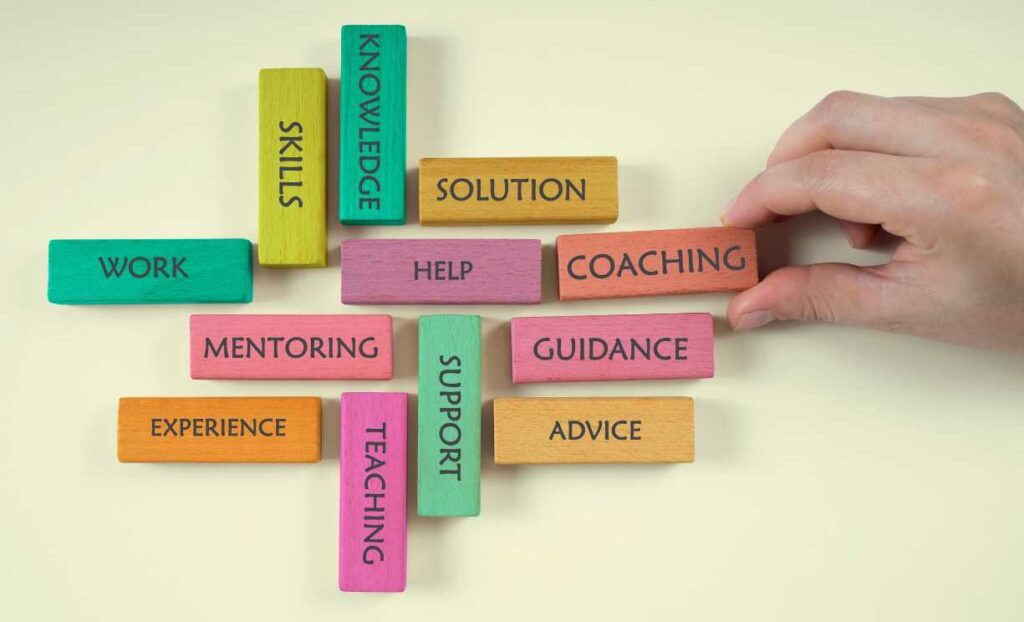In the dynamic landscape of personal development, integrative life coaching emerges as a beacon of holistic transformation. This approach seamlessly blends diverse methodologies to address the multifaceted dimensions of an individual’s life. In this blog, we are going to delve into the core aspects of integrative life coaching and understand how it can unlock your true potential.
Contents
Understanding Integrative Life Coaching
Integrative Life Coaching is a dynamic and personalized approach to guiding individuals toward achieving their full potential and fostering holistic well-being. Unlike one-size-fits-all methodologies, integrative coaching recognizes the multifaceted nature of human experience and tailors strategies to align with individual needs.
The process begins with a comprehensive assessment, allowing the coach to understand the client’s unique strengths, challenges, and aspirations. From there, a customized coaching plan is developed, encompassing various life domains such as career, relationships, health, and personal growth.
Integrative Life Coaching acknowledges the profound connection between mental and physical well-being. Techniques that promote a balanced mind-body relationship are integrated into the coaching process, recognizing that true well-being extends beyond mental processes.
Key Components Of Integrative Life Coaching
Integrative Life Coaching encompasses several key components that contribute to its effectiveness in guiding individuals toward holistic well-being:
- Comprehensive Assessment: A thorough evaluation of the client’s strengths, challenges, values, and aspirations provides a foundation for tailored coaching strategies.
- Personalized Coaching Plan: Based on the assessment, the coach collaborates with the client to create a customized plan that addresses various life domains, such as career, relationships, health, and personal development.
- Holistic Goal-Setting: Rather than focusing on isolated objectives, integrative coaching encourages clients to set goals that span different areas of their lives, recognizing the interconnectedness of various aspects.
- Mind-Body Connection: Integrative coaching acknowledges the profound link between mental and physical well-being. Techniques promoting a balanced mind-body relationship are integrated to foster overall wellness.
- Adaptive Approach: The coaching process is flexible and adapts to the client’s evolving needs and challenges. This adaptability also ensures continued growth and personal development.
- Holistic Personal Growth: Integrative coaching facilitates comprehensive personal growth on emotional, mental, and spiritual levels, fostering a deeper understanding of the self and a more profound sense of well-being.
- Diverse Coaching Modalities: Certified integrative coaches often draw from diverse coaching modalities and approaches, tailoring their methods to suit the individual needs and preferences of each client.
- Client-Centric Approach: Successful integrative coaches prioritize a client-centric approach, respecting each person’s unique journey and providing support that aligns with their individuality.
- Empowerment Toolkit: Clients are equipped with a personalized toolkit of strategies and resources that empower them to navigate life’s complexities independently.
Benefits Of Integrative Life Coaching
Integrative Life Coaching offers numerous benefits, providing individuals with a comprehensive and multifaceted approach to personal development and overall well-being. Here are some key advantages:
- Holistic Growth: Integrative coaching addresses various aspects of life, thus, fostering holistic growth and balance.
- Tailored Approach: The coaching process is personalized to meet the unique needs, values, and goals of each individual, ensuring a customized and effective coaching experience.
- Clarity and Self-Discovery: Integrative coaching helps individuals gain clarity about their values, strengths, and goals, fostering deep self-discovery and a clearer sense of purpose.
- Balanced Goal Setting: Clients work towards achieving well-rounded goals in different areas of life, promoting balance and fulfillment across various life domains.
- Stress Reduction: Techniques integrated into coaching, such as mindfulness and stress management, contribute to reducing stress levels and enhancing resilience in the face of challenges.
- Improved Relationships: Integrative coaching often includes strategies to enhance communication, empathy, and interpersonal skills, leading to improved relationships with oneself and others.
- Enhanced Emotional Intelligence: Clients develop higher emotional intelligence, gaining the skills to navigate emotions effectively and build healthier relationships.
- Life Satisfaction: Integrative coaching aims to enhance overall life satisfaction by addressing multiple facets of life and empowering individuals to live authentically and purposefully.
- Positive Behavioral Changes: Clients often experience positive behavioral changes as they implement strategies learned in coaching, leading to a more fulfilling and purpose-driven life.
- Resilience Building: Integrative coaching equips individuals with tools and skills to build resilience, enabling them to cope effectively with life’s challenges and setbacks.
What To Expect From Your First Session?
Embarking on the journey of integrative life coaching can be a transformative experience. Here’s what you can generally expect when engaging in integrative life coaching:
- Goal Setting and Clarification: The coaching process often begins with clarifying your goals and aspirations. Your coach will work with you to articulate and define what success looks like in different areas of your life.
- Identification of Strengths and Challenges: Through self-assessment and guided discussions, you’ll identify your strengths, values, as well as areas for growth. This awareness forms the foundation for developing strategies to overcome challenges.
- Customized Strategies: Integrative life coaching involves the development of personalized strategies and action plans. Your coach will collaborate with you to create actionable steps that align with your goals and values.
- Skill Building: Depending on your goals, integrative life coaching may involve skill-building exercises. This could include communication skills, time management, stress reduction techniques, or other practical tools.
- Accountability and Progress Monitoring: Your coach serves as an accountability partner, helping you stay on track with your goals. Regular check-ins and progress assessments ensure that you are moving forward and making the desired changes in your life.
- Mindfulness and Self-Reflection: Integrative life coaching often incorporates mindfulness and self-reflection practices. These techniques can enhance your self-awareness and contribute to a more mindful and intentional way of living.
- Encouragement and Support: Throughout the coaching process, you can expect encouragement and support from your coach. They are there to celebrate your successes, provide guidance during challenges, and offer a non-judgmental space for exploration.
- Measurable Outcomes: The effectiveness of integrative life coaching is often measured by tangible outcomes. These could include achieving specific goals, improved well-being, enhanced relationships, or a greater sense of fulfillment.
Choosing Your Integrative Life Coach
Selecting the right integrative life coach is a crucial step in ensuring a positive coaching experience that aligns with your goals and values. Here are some considerations to help you choose the right integrative life coach:
- Credentials and Training: Look for a coach with proper credentials and training in life coaching. Certifications from reputable coaching institutions or organizations indicate a commitment to professional standards.
- Specialization and Expertise: Consider the coach’s specialization and expertise. Some coaches may focus on specific areas such as career transitions, wellness, or relationship coaching. Choose a coach whose expertise aligns with your goals.
- Approach and Methods: Understand the coach’s approach and coaching methods. An integrative life coach should use a variety of techniques to address different aspects of your life. Ensure their approach resonates with your preferences and values.
- Compatibility and Connection: Building a strong rapport with your coach is essential. Schedule an initial consultation to assess whether you feel comfortable with the coach.
- Feedback and Reviews: Read client testimonials and reviews if available. Positive feedback from previous clients can provide insights into the coach’s effectiveness and the impact of their coaching.
- Ethical Practices: Choose a coach who adheres to ethical coaching practices. This includes maintaining confidentiality, respecting boundaries, and upholding professional standards.
- Availability and Logistics: Consider practical factors such as the coach’s availability, session formats (in-person, virtual, or a combination), and whether their coaching style aligns with your preferences.
- Cost and Investment: Understand the coach’s fee structure and what is included in the coaching package. While cost is a factor, consider coaching as an investment in your personal growth and well-being.
Conclusion
In conclusion, integrative life coaching is a powerful journey toward self-discovery and holistic well-being. It offers a comprehensive approach that goes beyond goal-setting, focusing on creating a life aligned with values and passions. Throughout the process, individuals can expect a supportive environment, fostering self-awareness and the development of essential life skills. The adaptability of integrative coaching ensures a personalized experience tailored to individual needs. This journey is not just about achieving goals but about living authentically and purposefully. It’s an opportunity to step into your full potential and embrace a more fulfilling life.
If you looking for life coaching MantraCoach is here to help. Book your free trial online life coaching session now.





